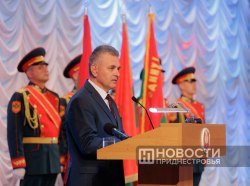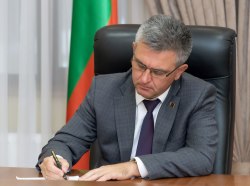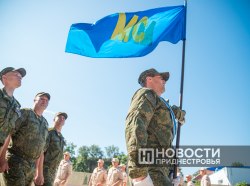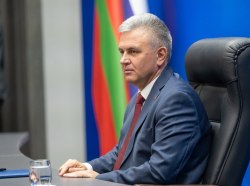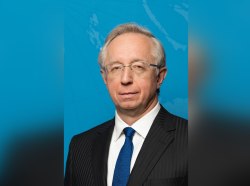The JCC established the boundaries of the Security Zone between the conflicting parties. The zone is 225 km long and from 12 to 20 km wide. The commission was tasked to separate the conflicting parties and organise the introduction of peacekeeping forces into the conflict zone. The functions to keep peace in the region were assigned to the Joint Peacekeeping Forces, which included Russian, Moldovan and Pridnestrovian military. It was the first time in worldwide practice when yesterday's enemies were assigned to carry out a peacekeeping operation. The Joint Military Command and the institution of military observers were key elements of the peacekeeping operation as well.
The JCC was formed by the three parties on parity basis. All JCC decisions are taken using the consensual approach, and each of the three delegations can veto any decision. The commission resides and holds sessions in the city of Bendery, which together with its suburbs is declared the enhanced security district.
In confirmation with its high intergovernmental status, on 21 July 1994 the JCC signed with the Organisation for Security and Cooperation in Europe the «Principles for the cooperation between the OSCE Mission and the JCC in the Security Zone», which are still in force today. In 1998 Ukraine joined the peacekeeping operation through the institution of military observers, and so did the representatives of the OSCE Mission.
The role of the JCC in the peaceful settlement cannot be overemphasised. The governing body of the peacekeeping operation has created conditions for the parties to carry on a dialogue in a peaceful environment and negotiate the most difficult debatable issues.




